Dallas writer-director Yen Tan has brought 1985 back to stylistic basics, and the resulting resolute lack of adornment enhances his film’s concentration on a story that achieves indisputably powerful, and notably reserved emotion. Independent cinema through and through, it’s economical in every sense and thrives on excellent all-round performances.
Tan’s drama of family relations, set at the moment when the impact of the HIV/AIDS epidemic was gradually becoming clear to Middle America, takes us back three decades, and there’s a similar feel to the visual style that he and his cinematographer (and producer) HutcH have chosen. They filmed in black-and-white Super 16, which seems to amplify contrasts, heightening darkness and often draining light – there’s a certain graininess, too – that surely consciously plays with the idea of home movies.
Secrets (and half-lies) are never quite what they seem here
Which is appropriate for this narrative, given that protagonist Adrian (Cory Michael Smith) is coming back to his Fort Worth, Texas home for Christmas after three years away in New York. He clearly took the first chance he had to get out of there and head for the big city, drawn by its freedoms of attitude and behaviour. The resulting separation has become much more than just geographic – even though it’s been a long absence, by any standards – and we sense that he’s moved on in every way from the suburban, Bible Belt world from which he started.
There’s certainly a tense distance with his father (Michael Chiklis), when he meets him at the airport, the older man’s down-to-earth quality a contrast to Adrian’s city style: he’s also clearly the stronger force for religion in the family, that security of belief an anchor in a life that, we learn later, included service in Vietnam. Mother Eileen (Virginia Madsen, giving a beautiful performance) compensates for any such paternal chill with an almost anxious affection, while younger brother Andrew (Aidan Langford), barely a teenager, clearly harbours resentment at how his elder sibling disappeared from his life. The only genuinely uncomplicated reunion awaiting Adrian is with the family’s big old German Shepherd.
The reticence here isn’t only because Adrian hasn’t come out to his parents, which makes for uneasy questions about his New York roommates, as well as a re-encounter with a past girlfriend (Jamie Chung) that reaches through the pain and awkwardness to achieve some welcome catharsis. There’s an anxiety about his health, too, with his mother’s concerns about how he’s lost weight, and the stomach flu that is wearing him down: Tan’s story certainly takes its time with its reveals, and his very chaste film gives a glimpse of Adrian's other world only in a brief final moment.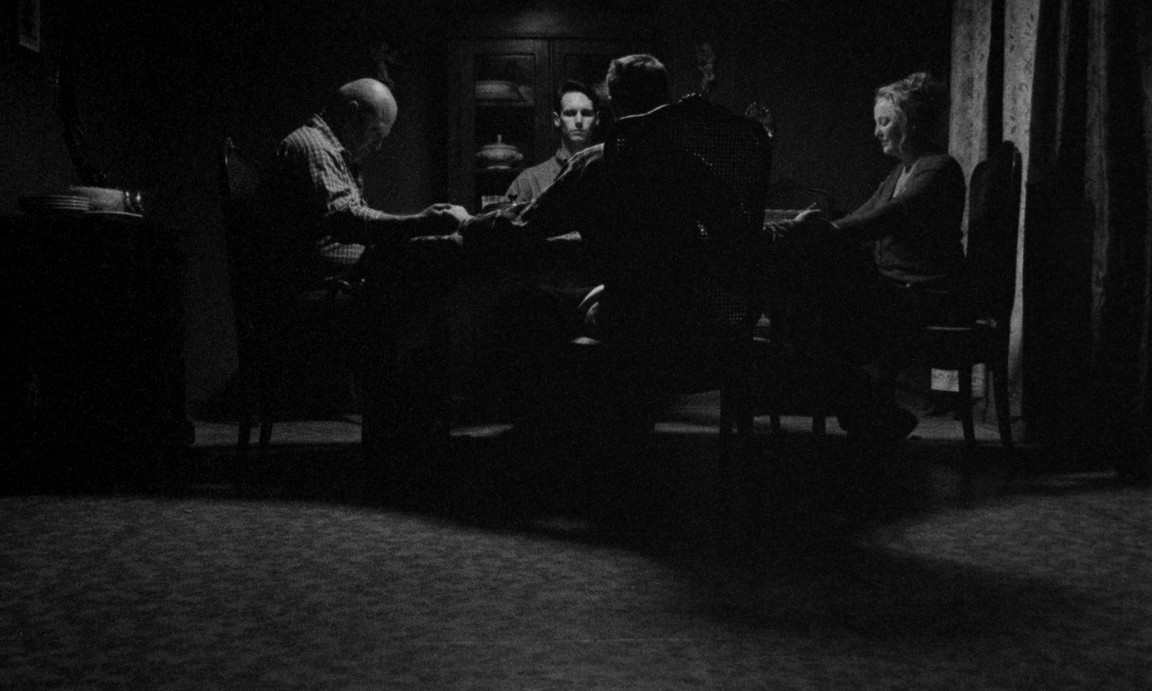 But though a thread of tragedy spins itself through 1985, there’s also a lot of warmth, as well as some lovely humour, to balance that, and a sense that returning home to a world that you have left behind inevitably brings its incongruities. One scene has a high-school contemporary of Adrian’s apologising for how he’d treated him in the past: it’s both agonisingly awkward and redeemingly well-intentioned. This is certainly no return visit of accusation or a demand for recompense; instead there’s a strong sense of paradoxical love, heightened by a sense that it’s in all probability the last time.
But though a thread of tragedy spins itself through 1985, there’s also a lot of warmth, as well as some lovely humour, to balance that, and a sense that returning home to a world that you have left behind inevitably brings its incongruities. One scene has a high-school contemporary of Adrian’s apologising for how he’d treated him in the past: it’s both agonisingly awkward and redeemingly well-intentioned. This is certainly no return visit of accusation or a demand for recompense; instead there’s a strong sense of paradoxical love, heightened by a sense that it’s in all probability the last time.
The humour works particularly well within the family framework. A shared love of Madonna has Adrian rebonding with his brother, whose cassette collection has been purged on the instructions of the local pastor, as does his sense that the boy is growing up no less of an outsider than he has become himself. There’s a marvellous scene of bonding with his mother, which has her revealing her own dark secret – for these parts, at least: that she hadn’t voted for Reagan in the ‘84 elections. But secrets (and half-lies) are never quite what they seem here, something Tan hauntingly foregrounds in late revelations. They are all the more powerful for being made practically sotto voce, creating a sense of almost unbearablly fragile tenderness.
Tan developed 1985 from the short film of the same name that he made two years ago, which comes as an extra on the forthcoming DVD/Blu-ray dual format release, together with an audio commentary from the director Yen Tan and his DP HutcH.
Overleaf: watch the trailer for 1985




 But though a thread of tragedy spins itself through 1985, there’s also a lot of warmth, as well as some lovely humour, to balance that, and a sense that returning home to a world that you have left behind inevitably brings its incongruities. One scene has a high-school contemporary of Adrian’s apologising for how he’d treated him in the past: it’s both agonisingly awkward and redeemingly well-intentioned. This is certainly no return visit of accusation or a demand for recompense; instead there’s a strong sense of paradoxical love, heightened by a sense that it’s in all probability the last time.
But though a thread of tragedy spins itself through 1985, there’s also a lot of warmth, as well as some lovely humour, to balance that, and a sense that returning home to a world that you have left behind inevitably brings its incongruities. One scene has a high-school contemporary of Adrian’s apologising for how he’d treated him in the past: it’s both agonisingly awkward and redeemingly well-intentioned. This is certainly no return visit of accusation or a demand for recompense; instead there’s a strong sense of paradoxical love, heightened by a sense that it’s in all probability the last time.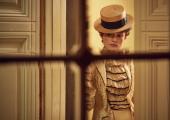

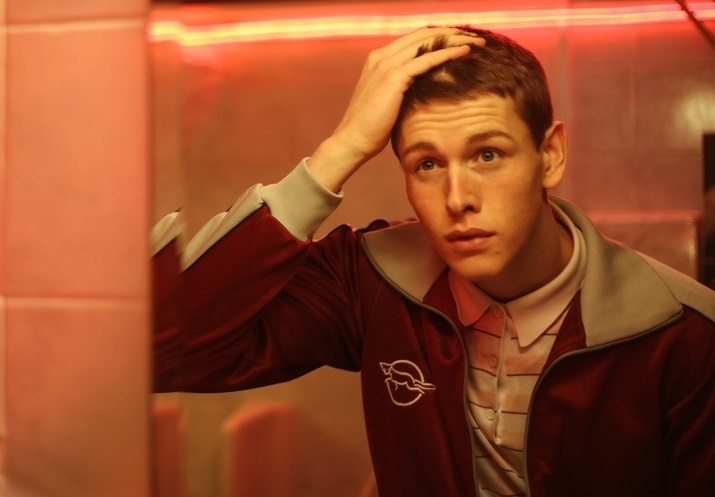 He becomes a member of high-class escort club The Raconteurs, which specialises in post-coital cultural conversation that involves a different kind of boning up to the usual one. The fact that he looks like a Caravaggio model makes history of art Jim’s natural field, and his beauty is soon conquering Soho, though somewhat parodically: the one encounter we witness involves some high-comedy, practically Carry On bathos, involving an elderly and portly CofE gent with a fixation on ancient history shooting rubber-tipped arrows at Jim, who’s modelling for St Sebastian (the real transgression is their smoking indoors). From that it’s a short skip to his becoming a muse for Max, a Soho artist of a definite vintage who’s a cross between Francis Bacon – for his sexuality; Bacon’s lover George Dyer is liberally referenced – and Lucian Freud, for the almost obsessive demands an artist can make on his sitters.
He becomes a member of high-class escort club The Raconteurs, which specialises in post-coital cultural conversation that involves a different kind of boning up to the usual one. The fact that he looks like a Caravaggio model makes history of art Jim’s natural field, and his beauty is soon conquering Soho, though somewhat parodically: the one encounter we witness involves some high-comedy, practically Carry On bathos, involving an elderly and portly CofE gent with a fixation on ancient history shooting rubber-tipped arrows at Jim, who’s modelling for St Sebastian (the real transgression is their smoking indoors). From that it’s a short skip to his becoming a muse for Max, a Soho artist of a definite vintage who’s a cross between Francis Bacon – for his sexuality; Bacon’s lover George Dyer is liberally referenced – and Lucian Freud, for the almost obsessive demands an artist can make on his sitters. 
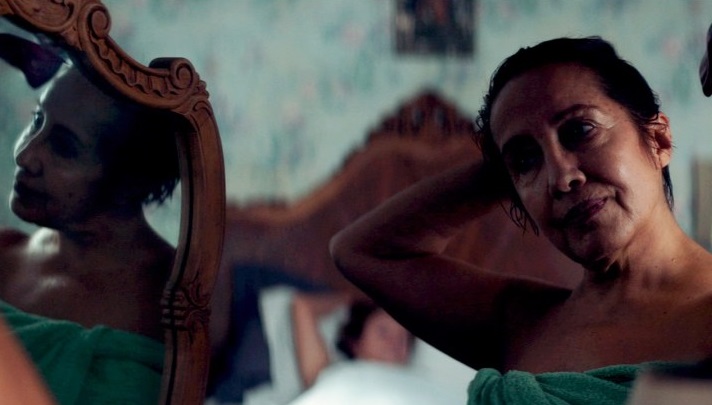 The reaction of the two women to the prison environment is characteristic, its noisy unruliness a world in which Chiquita quickly finds herself at ease, while it clearly intimidates Chela even more than having to drive herself there (in an ancient Mercedes that is another family hand-down). Despite the attentions of a well-meaning friend who is trying to have Chiquita released, the already limited boundaries of Chela’s world look set for further contraction.
The reaction of the two women to the prison environment is characteristic, its noisy unruliness a world in which Chiquita quickly finds herself at ease, while it clearly intimidates Chela even more than having to drive herself there (in an ancient Mercedes that is another family hand-down). Despite the attentions of a well-meaning friend who is trying to have Chiquita released, the already limited boundaries of Chela’s world look set for further contraction. 
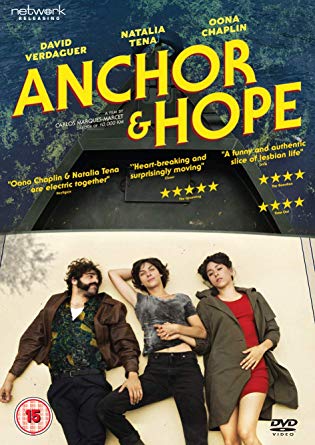 But the almost unspoken security of their relationship will be tested, a process indirectly set off by the death of their cat, the kind of seemingly unlikely association that actually rings very true to life here. The feline funeral, complete with Buddhist rites administered by Eva’s mother Germaine (played by Geraldine Chaplin, her mother in real life, who has a whale of a time with a role that is both memorably batty and attractively rich-hearted). The film’s opening chapter title may read “We can get another cat”, but Eva’s realisation that she wants her children (a subject so far apparently unmentioned between the two) to know her mother before it’s too late pushes a more immediate issue to the fore.
But the almost unspoken security of their relationship will be tested, a process indirectly set off by the death of their cat, the kind of seemingly unlikely association that actually rings very true to life here. The feline funeral, complete with Buddhist rites administered by Eva’s mother Germaine (played by Geraldine Chaplin, her mother in real life, who has a whale of a time with a role that is both memorably batty and attractively rich-hearted). The film’s opening chapter title may read “We can get another cat”, but Eva’s realisation that she wants her children (a subject so far apparently unmentioned between the two) to know her mother before it’s too late pushes a more immediate issue to the fore.
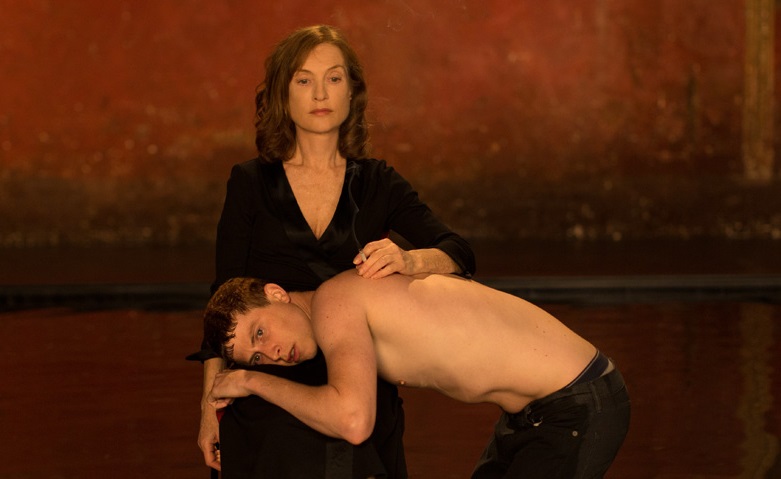 Fontaine has filled in that gap by positing an imagined concept that the Louis figure, here named Marvin Bijou – the awkwardness of that surname, translated as “Jewels”, seems horribly ironic for a context that is anything but sparkling – found his path out of that desolate early milieu through theatre. Early encouragement from a sympathetic schoolteacher is fortuitously followed by engagement with an intuitive stage director-coach, who draws Marvin both out of himself and into the Parisian gay scene. Never entirely losing his shyness, his involvement in that culture grows, encouraged by a largely benevolent sugar daddy figure who moves in circles of which the youth could once barely have dreamed.
Fontaine has filled in that gap by positing an imagined concept that the Louis figure, here named Marvin Bijou – the awkwardness of that surname, translated as “Jewels”, seems horribly ironic for a context that is anything but sparkling – found his path out of that desolate early milieu through theatre. Early encouragement from a sympathetic schoolteacher is fortuitously followed by engagement with an intuitive stage director-coach, who draws Marvin both out of himself and into the Parisian gay scene. Never entirely losing his shyness, his involvement in that culture grows, encouraged by a largely benevolent sugar daddy figure who moves in circles of which the youth could once barely have dreamed.
